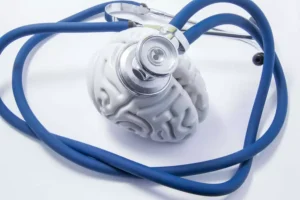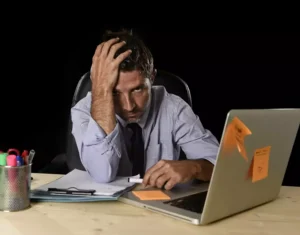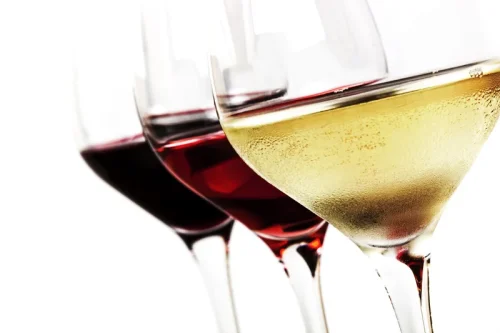
Improving your overall sleep hygiene can help you fall asleep faster and wake up less often, too. To minimize the effects of alcohol on your sleep, avoid it at least three to four hours before bedtime. People with alcohol dependence or going through alcohol withdrawal may experience reduced deep sleep and insomnia. And, unfortunately, insomnia is the most frequent complaint among alcoholics when they give up drinking. RISE can tell you when exactly you should stop drinking alcohol based on your circadian rhythm, or body clock, each day. We found RISE users with low sleep debt are most likely to use this habit reminder.
- Understanding the effects of alcohol on sleep is the first step toward preventing alcohol-related sleep problems.
- Research shows that consuming alcohol — even in a moderate dose — an hour before bedtime can cause a notable reduction in melatonin production.
- The impact of drinking on insomnia may be particularly acute in older adults.
Dr. Abhinav Singh,
You may notice some worsened insomnia during alcohol withdrawal. However, you may continue to have trouble sleeping for years after you stop drinking. For this reason, a person may need to drink increasing amounts to fall asleep, increasing the risk of alcohol abuse and addiction. Researchers have found that insomnia is a risk factor for alcohol abuse. If you’re regularly drinking alcohol to help you fall asleep, particularly if you have insomnia, it’ll probably make your sleep problem worse.
It Has a Rebound Effect in the Second Half of the Night
Even though alcohol may help you fall asleep, it interferes with the quality of your sleep. If you drink alcohol at night and have trouble falling or staying asleep, you might wonder how long you should wait between your does alcohol help you sleep last drink and going to bed so your sleep isn’t impacted. Although experts can’t be certain that alcohol directly causes insomnia, numerous studies have found a link between this sleep disorder and alcohol consumption.
Worsen snoring
But alcoholic sleep is at first snoring as if apoplectic; later, not to be roused. In alcoholic insomnia the patient tosses from side to side during nearly the whole night, getting only broken snatches of sleep attended with frightful dreams. Have you ever woken yourself up snoring after an evening cocktail or two?


Those effects of alcohol on the biological clock appear to persist even without additional drinking, according to research. Drinking alcohol before bed does help you fall asleep more quickly and sleep more deeply during the first half of the sleep period. REM sleep is considered the deep sleep when your body resorts itself both physically and mentally. The more alcohol you drink, the more REM sleep is disturbed and the more likely you will wake feeling unrested and groggy.

- However, consuming alcohol can also cause sleep disruption and other adverse effects on people’s health.
- However, the reality is that alcohol has more of an adverse effect on sleep than a positive one.
- When your body is metabolizing alcohol while you’re asleep, you’ll experience more NREM sleep and less REM sleep than you otherwise would.
- So while cutting out drinking will likely benefit your sleep, there may be other factors affecting your shuteye.
Use of this website and any information contained herein is governed by the Healthgrades User Agreement. Give yourself a cutoff of at least three hours prior to hitting the hay (longer if you drink more). According to the NIAAA, that’s approximately how long it takes an adult to metabolize one drink on an empty stomach. «Studies have also shown that alcohol use leads to longer durations of apneas, along with a more dramatic drop in oxygen levels,» Dr. Shelgikar says.
We use your questions to help us decide topics for articles, videos, and newsletters. Please note, we cannot provide specific medical advice, and always recommend you contact your doctor for any medical matters. 💙 Incorporate music into your nighttime routine to set a calming mood. 💙 If you’re struggling with stress, try stepping out of the rumination cycle by Working with Thoughts. Ultimately, no two cases of insomnia are the same, and no treatment plan is right for everyone.
Managing Chronic Pain and Sleep: Helpful Tips for a Good Night’s Rest
- Alcohol also causes sleep problems by disrupting the autonomic nervous system—the body functions that happen involuntarily.
- In a normal circadian rhythm, hormones are released at certain times throughout the day.
- The GABA’s main function is to slow down body and brain activity.
- Scientists have studied alcohol and sleep problems and alcohol’s effect on various sleep stages, in both the first and second half of the night’s rest.
- Research shows that between 33% and 40% of people who consume alcohol experience mild to severe anxiety.
So while cutting out drinking will likely benefit your sleep, there may be other factors affecting your shuteye. If you’re planning on heading out for a night that will involve some drinks, there are some things you can do to help you sleep afterward. The most effective time of day for the body to metabolize alcohol, according to research? That’s right, the traditional “happy hour” time is actually when the body is most prepared to process that cocktail. If that mimosa with brunch hits you particularly hard, it may be the result of circadian timing. Circadian rhythms affect how the body responds to alcohol, depending on the timing of alcohol intake.
